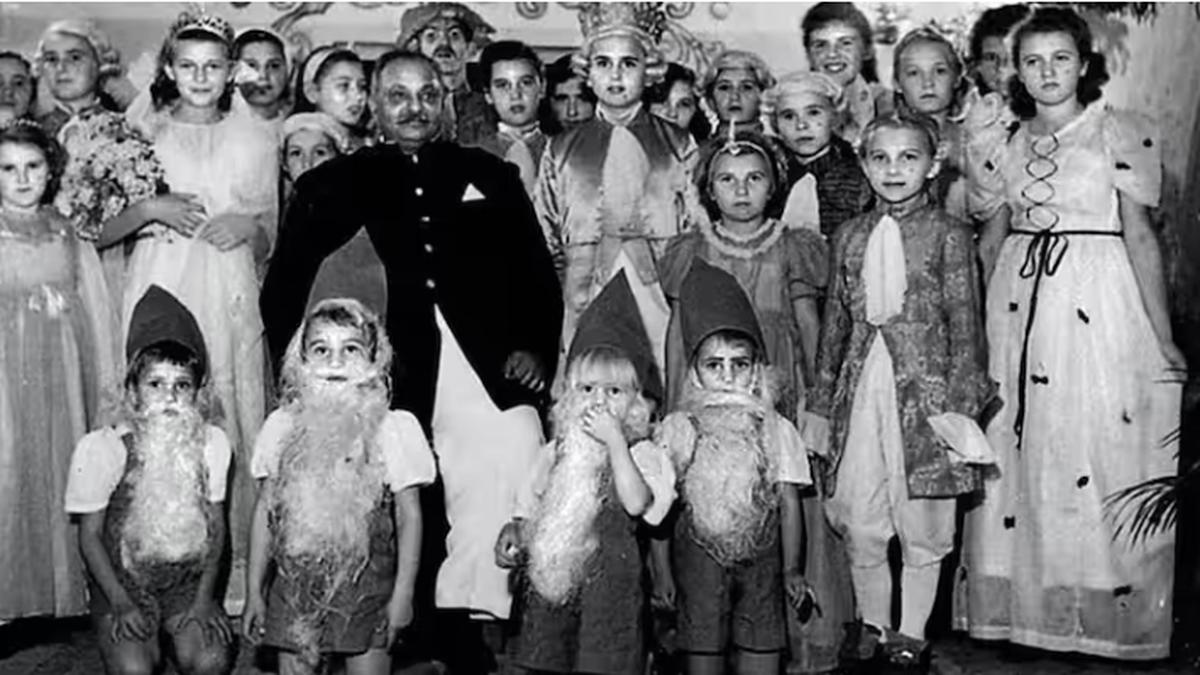
How a citizen initiative led to the naming of a Warsaw square after a maharaja from Gujarat
The Hindu
The story of Maharaja of Nawanagar sheltering Polish children in Gujarat during WWII recognised and commemorated in Poland.
For many years, the story of the Maharaja of Nawanagar, Digvijaysinhji Ranjitsinhji Jadeja, who sheltered around a thousand Polish children in Gujarat during World War II, was a lesser known chapter in the shared history of Poland and India. It was only after political changes in Poland in 1989 that this remarkable act of kindness could be talked about, and deservedly recognised, according to Sebastian Domżalski, chargé d’affaires of Poland in India.
Last month, on an official visit to Poland, India’s Prime Minister Narendra Modi laid wreaths at three memorials in Warsaw — one dedicated to the erstwhile ruler of Nawanagar, known as the Good Maharaja, another called the Kolhapur memorial, and lastly, the Monument to the Battle of Monte Cassino.
The first two, dedicated to India, would not be there if not for citizens’ initiatives that sought to recognise a good deed on an international level, said Warsaw-based Indologist Krzysztof Iwanek. The Kolhapur memorial honours the erstwhile royal family of Maharashtra that gave refuge to 5,000 Polish families in the village of Valivade during World War II.
These monuments weren’t originally an idea of the Warsaw government. While the Polish people, as a nation, remained grateful to India, “not a single Polish government, regardless of which party formed it, cared to commemorate the Indian maharajas. Gradually, some of the Polish citizens took matters into their hands to fill this gap,” said Iwanek, Asia coordinator at the Warsaw-based Foundation Institute for Eastern Studies, in a conversation with this writer on his visit to the Polish capital.
In the 90s, a high school in Warsaw was named after Nawanagar’s ruler — popularly known as Jam Sahib — at the behest of Indologist and former ambassador to India (1993-96), Maria Krzysztof Byrski. The latter was conferred the Padma Shri in March 2022 and was among those Modi met during his visit.
Jam Sahib had wished for a street in Warsaw to be named after him for his role in sheltering Polish children, according to Iwanek. In 2010, a group of Asia watchers, including Iwanek, from the think tank Poland-Asia Research Centre, commenced a public initiative to commemorate the maharaja. “It had two objectives: to petition the President of Poland to bestow a posthumous award on the maharaja, and to name a place in Warsaw after him,” said Iwanek.
The initiative was also supported by some of those who had lived in India as children during World War II. The group included Wiesław Stypuła, who played a large role in popularising the story of Poles in India by publishing books and articles on the subjects. Stypuła passed away this May, three months before Modi’s visit.


















